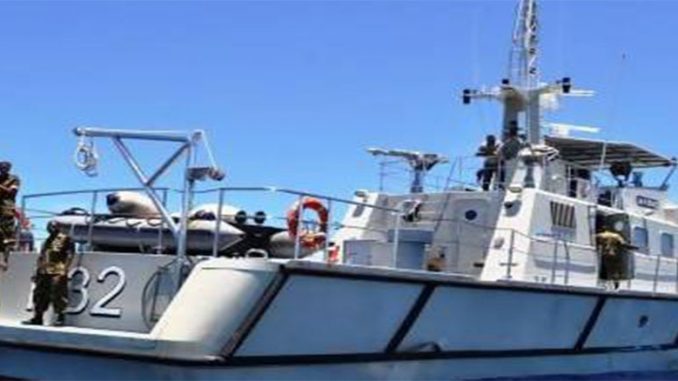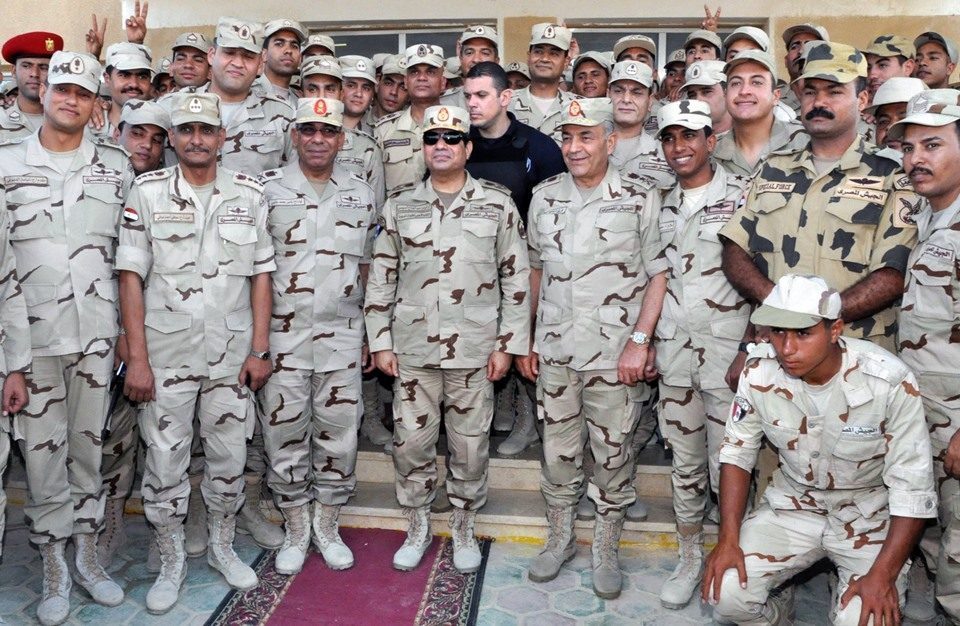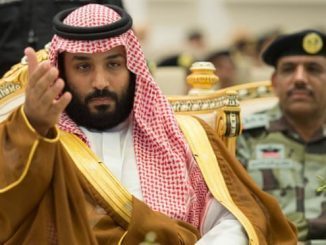
Middle East Observer has exclusively obtained a video clip that shows a UAE vessel while fishing in Somali territorial waters.
Though the video clip that the Middle East Observer (MEO) is not professionally recorded, it shows a fishing vessel belonging to the United Arab Emirates (UAE), while fishing in Somali territorial waters without official permission from the Somali Federal Government or even the Somali regional governments. The Emirati officials reportedly give bribes to corrupt Somali high-profile executive employees and civil servants, here and there, to allow them to do so. According to Somali official sources, the UAE violates international rules and laws governing fishing activities. The UAE fishing companies bring workers from poor countries such as India and Bangladesh to do such dirty work for them.
However, official sources confirmed these reports to MEO, adding that Somali Government issued no statement condemning or rejecting such illegal activities, as those carried out by UAE fishing vessels – as those who are supposed to help protect the Somali wealths are in fact part of the problem . The sources said the UAE pays bribes to some influential Somali figures who in turn allow the UAE vessels to fish there without giving them any official documents in this regard. This is one of the most prominent manifestations of corruption in Somalia. They take advantage of the absence of any surveillance, naval forces or border guards to monitor and protect the country’s beaches and territorial waters.
Illegal fishing in Somali waters needs international solutions
Somalia is rich in marine life fisheries that have attracted many illegal fishing operations. This increasingly widespread practice has the disastrous effect of depleting the poor nation’s food supply.
The foreign illegal fishing boats use and employ highly sophisticated and deadly effective fishing technology which are banned at some countries like bottom-trawling. Vessels from the United Arab Emirates as well as other countries come into the territorial waters off the Somalia coast to deplete the resources of this recovering nation to the last drop.
Many species of marine fish in Somali waters are currently endangered due to overfishing and overexploitation by foreign trawlers operation inside the Somali waters. Furthermore, this illegal fishing will reduce future productivity and biodiversity, thus exacerbating imbalances in the ecosystem which then lead to reduced food security in Somali communities that are heavily dependent on fish as a source of animal protein.
Illegal fishing and piracy
One of the key underlying economic reasons of piracy in Somalia is the depletion of seafood resources through illegal fishing by foreign companies. The pirates who captured the UAE oil tanker early 2017 claimed to be fishermen whose equipment was destroyed by illegal fishing vessels. A local official for a Puntland anti-piracy agency confirmed that the attack is linked to illegal fishing along the Somali coast, a problem that has existed for a while. While the issue was temporarily solved amid the implementation of aid programs, which replenished Somali fisheries, the depletion of Somalia’s seafood stock had pushed workers who depended on fishing for a livelihood toward piracy.
What is the solution?
A temporary solution is to confiscate illegal trawlers and put the illegal fishermen on trial while launching discussions with their respective governments of what to do with the guilty. Those who broke laws should be accountable for their crimes in the sea and sentences should be equivalent not to the value of the fish stock they harvested but to the overall capacity of the trawler and the environmental damage and degradation they have caused to the marine life in Somalia.
On the larger scheme of things, the international community and friendly countries like Turkey, the USA, Great Britain, Japan, South Korea and Germany should provide the recovering yet progress-making government of Somali President Mohamed Abdullahi Farmajo with patrol vessels that can protect the exclusive economic zone of Somalia.



